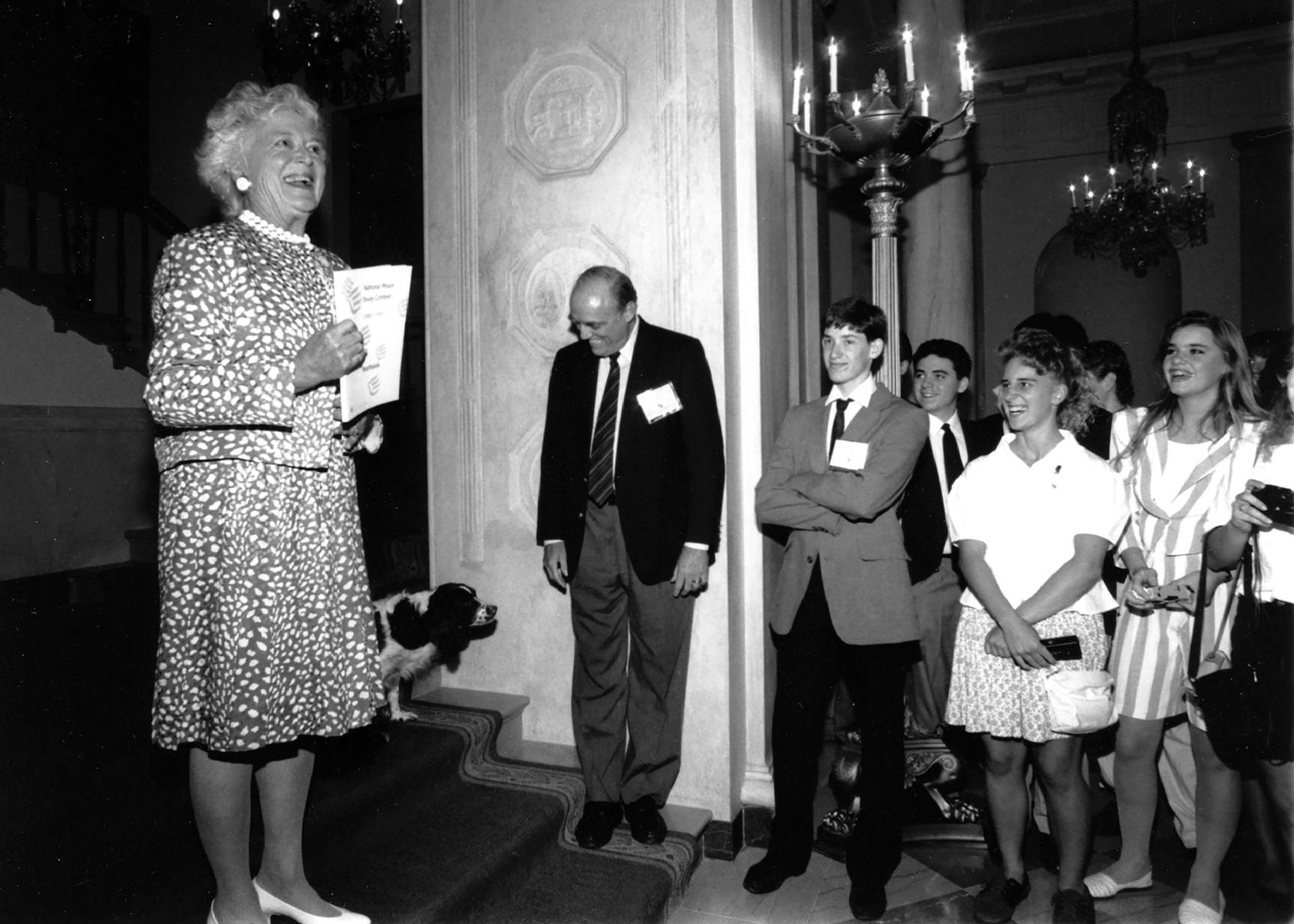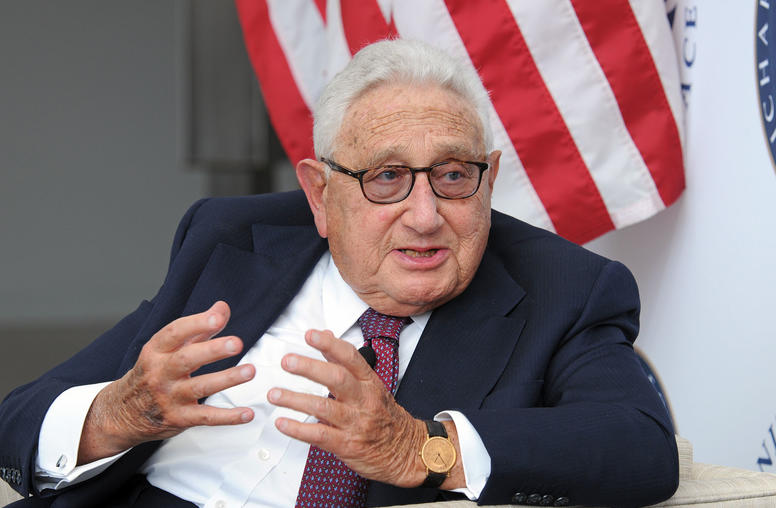In Memoriam: Barbara Bush
The U.S. Institute of Peace is saddened by the death of former First Lady Barbara Bush, who served America and the global community as an exemplar of the diplomacy, honest dialogue and compassion that are central to building peace. During the administration of her husband, President George H.W. Bush, Barbara Bush lent her active support to USIP’s educational mission, notably among U.S. high school students.

“Barbara Bush was a model of dignity, strength and grace throughout her life and in her death,” said USIP’s president, Nancy Lindborg. “She won the love and respect of Americans and people around the world for her role as a no-nonsense partner and guide in her husband’s long career in public service; for her commitment to family and service; and for her dry, irreverent flashes of wit that won our hearts.”
A Common, Human Appeal
In a life deeply embedded in U.S. politics, Mrs. Bush remained a largely apolitical figure. She exuded a cultural and emotional appeal across partisan divides. Her wry, down-to-earth view of herself and the world emphasized her common humanity with, and respect for, other people.
Mrs. Bush became well known for her advocacy of domestic causes, including literacy and civil rights. After she and her husband lost a young daughter to leukemia, Mrs. Bush raised public awareness and funds to combat childhood cancer. “She acted from her personal experience, but without putting herself at the center of it,” said Kathleen Kuehnast, who directs USIP’s efforts to strengthen the roles of women in building peace. Mrs. Bush’s voluntarism for educational causes included raising funds for the United Negro College Fund.
An Exemplar of Diplomacy
What is less remembered by many Americans, and close to the values of USIP, is that Barbara Bush played significant parts in some of the most important American diplomatic and peacemaking challenges of her lifetime.
As first lady, she took a role in defining U.S.-Soviet relations to help end the Cold War. An iconic moment was her 1990 joint appearance with the Soviet first lady, Raisa Gorbachev, to deliver the commencement address at Wellesley College. In that shared act, the two broke traditional molds for women leaders in the world’s superpower nations. They jointly made clear that our only future is in dialogue and building relationships. The event was a powerful, emotional moment as Bush and Gorbachev evoked standing ovations and admiring global news coverage.
Barbara Bush’s 1990 partnership with Raisa Gorbachev “is an illustration of her role as one of the most widely respected women of her time, as well as her willingness to take a stand to make a difference,” said Kuehnast.
Two decades before that, Barbara Bush was unheralded, but important, in pioneering America’s diplomacy with the People’s Republic of China. Only two years after President Richard Nixon visited China to unfreeze the countries’ relations in 1972, President Gerald Ford sent George Bush, with Barbara Bush, to head the U.S. Liaison Office that would become the U.S. Embassy.
The Bushes had to establish the American diplomatic presence without a roadmap—introducing America to the Chinese officials and citizens through their own travel, engagement and personas. They studied the Chinese language, bought a pair of Chinese bicycles and pedaled around Beijing.
As in other areas of Barbara Bush’s life, she served her missions of diplomacy and building peace without fanfare but to enormous good effect.
